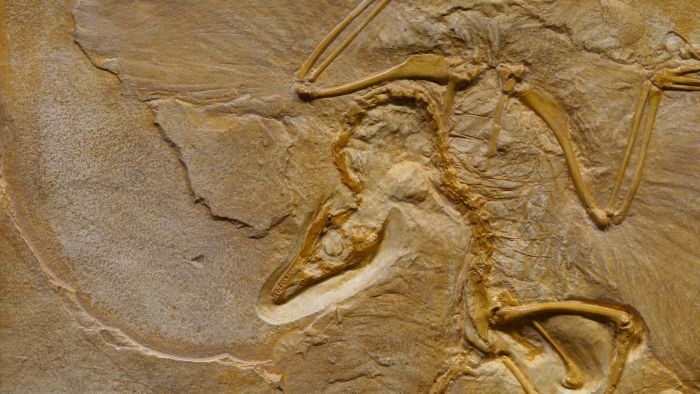
Let’s start from the beginning: I have decided to try to put down on paper, in this space made available to me, some thoughts on the topic of man-technology-environment-energy because I think it is urgent to become aware of some issues, and not because there is no one to do it, but because I believe that very often we do it in the wrong way. While on the one hand there are those who promote the green mythology, that of good nature disfigured by bad men, on the other there are still those who deny the climate and environmental crisis and openly oppose certain choices, including economic ones, that are made with a view to protection. So here I am, trying to argue on these issues on the thin edge that separates these two sides of the coin. I think there is no better way to begin than by starting from some commonplaces that we have introduced without much critical spirit and which, if we want to do ourselves a favour, we must get rid of as soon as possible.
First cliché: Mother Earth is a fairy tale for small children
It makes no sense whatsoever to talk about Mother Nature, Mother Earth, etc. Every time you hear this phrase, you raise your antennae of distrust. The conception of nature, the Earth, as a benevolent subject towards us, almost endowed with a will of its own, is a vision dictated by our Christian cultural heritage, according to which everything we see has been created for us, so that we can use it as we like. According to this view, we human beings are at the centre of creation (sic!). The truth is very different, and Leopardi also sensed this when he spoke of Nature as a Stepmother, and not as a benevolent Mother, but in reality he was wrong too. Because, if it is true that Nature is not benevolent towards us, it is equally true that she does not nurture any antipathy towards ours or other animal or vegetable species. Quite simply: a) it was not created by any god for us, b) we are both the result of the evolution of our universe that originated with the Big Bang.
The Earth, then, our planet, follows its natural evolution, and we have managed to evolve, grow and prosper in a particular – and exceptional – parenthesis in its history. A parenthesis in which environmental and climatic conditions were favourable to our species and not to others.
But let us go into a little more detail, just to measure up to our boundless egos: our planet has existed for about 4.5 billion years, we human beings for a few hundred thousand. If the history of the Earth were as high as the Eiffel Tower, we human beings (from primitive man via the Romans, Napoleon, to Lady Gaga) would have a history that could be encapsulated in the thickness of a few millimetres of paint on its tip.
a trifle, far from being at the centre of the Universe.
Second cliché: the Anthropocene is not an invention
On Earth, over more than 4 billion years, climate change has been the order of the day: these developments have caused extinctions of various animal species, even mass extinctions, but the Earth, she, is still here. And she will be here even after our species goes extinct (yes, it will happen sooner or later). The causes of these changes are due to various factors: the variation of the tilt of the Earth’s axis, various ocean currents, but above all solar activity.
So man is not to blame for what we are experiencing now? Are those who say that the changes we are seeing are completely ‘natural’, that they would have happened anyway, and that we should not worry too much about them, right? No.
No, because something has changed precisely because of mankind, and that something is the speed at which those changes are taking place. It is no coincidence that many scholars have begun to call this era of ours the ‘anthropocene’. Particularly in the last century, especially following the industrial revolution, man has become the main cause of influence on climate change: the planet continues to heat up more and more abruptly than in previous eras. It is as if we are throwing petrol on the fire: we are accelerating the process in a worrying way, but we pretend not to notice and, whistling, look the other way.
Third cliché: paradoxically, we need to be more selfish
It is our species that is at risk, not the Earth. So, also in terms of communication, all those who deal with these issues more and better than I do should try to focus more on this aspect, perhaps it would appeal more to a wider segment of the population. When the evidence/urgency of climate change is communicated to us with speeches such as “Let’s save nature”, “Let’s save the planet”, “Let’s respect the environment”, and so on, two mistakes are made: one scientific, the other communicative.
In fact, it is in man’s interest to ensure that the climatic parameters that have allowed the birth and evolution of our species remain as long as possible within the tolerable range that allows us to live and prosper. To survive. If these parameters get out of control, we, our children, grandchildren and great-grandchildren will pay the price, not the Earth. She does not need to save herself, she adapts, she evolves. We, on the other hand, will become extinct more quickly.

Apocalyptic and integrated
The difficulty, when talking about the environment, climate change and so on, is that of ending up, or being labelled, in one of the two opposing factions. In the words of Umberto Eco, there are the apocalyptics, who see or proclaim the end of the world (and here we return to the point I was making earlier, perhaps it would be more correct to speak of the end of our species!) at every turn. Catastrophic and self-destructive ecologism is, in my very personal opinion, a cult for people in search of emotional relief and spiritual satisfaction. A secular religion to give its followers a sense of purpose and transcendence. In the best tradition of religious sects, this distorted environmentalism also cultivates apocalyptic fanaticism. It does so with announcements as peremptory as they are anxious that ‘billions of people are going to die’. Here, I honestly don’t think it is helpful to the cause.
On the other hand, there are the integrated ones: those who do not question at all or who believe that climate change is not real, despite all the scientific evidence to support it.
The healthiest path, the one we should all try to pursue, should instead be to take note of the problem of climate change, and of man’s impact on the environment, and to understand that this dynamic must be contextualised with respect to the development of our society, to the technology that is and will be available, and to the ability to precipitate that technology into concrete activities and into economic phenomena, which means innovation. Social and technological.
And this, at least I will try, will be the attempt of my interventions.



































